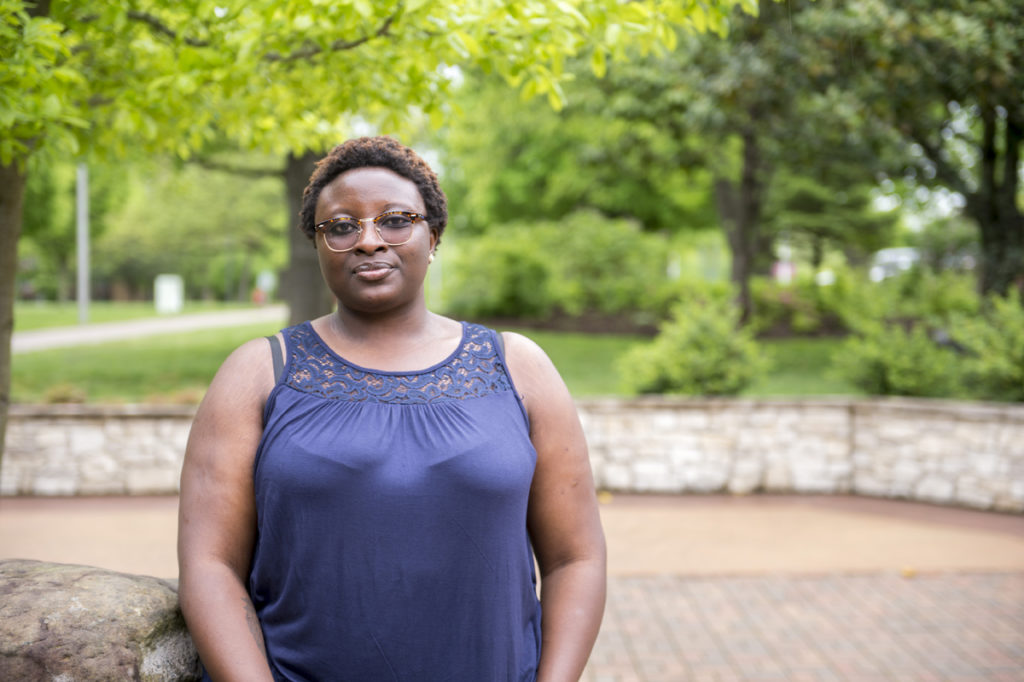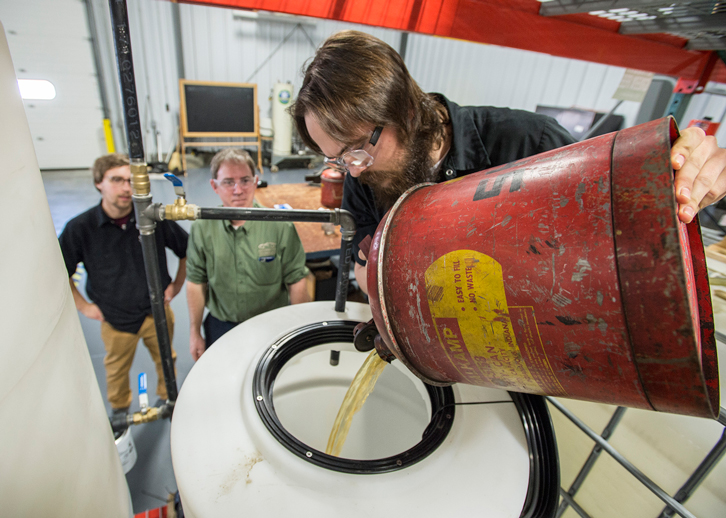
With an estimated 795 million people in the world struggling with food poverty, world hunger is an often overwhelming issue. The majority of those suffering live in developing countries, with Nigeria’s three million food insecure individuals putting them in a serious condition, based on the Global Hunger Index.
At the same time Nigerians are suffering with food poverty, many live and work on small farms. Yet, new research by Southern Illinois University Carbondale master’s student Alexandra Akaakar highlights the need for better resources, support and technologies to allow these farmers to meet the needs of their families and communities.
Agriculture development for solving poverty
After a recent economic recession put added pressure on Nigeria, the number of food insecure families more than doubled. Yet, while much research addresses the extremes of food poverty, such as droughts and famines, little looks at the countless families who are only one crisis away from serious hunger. For Akaakar, this was a gap she was ready to fill.
“I initially started researching poverty and agriculture because I thought agriculture development would be a major key in solving poverty,” Akaakar said. “My research looks at how and why these families are so vulnerable during a time of recession.”
Food is a basic need for all people. When people aren’t getting the food they need because of conflict and political instability, that is a problem that can be solved, Akaakar explained.
With the help of agribusiness economics professor Wanki Moon, Akaakar uncovered several of the key issues facing Nigerian farmers and built a framework for assuring support to those facing hunger.
“My goal is this research will help to kick start this conversation about food poverty in the region,” Akaakar said.
Overcoming the resource curse
More than 90 percent of all Nigerian export income comes from oil, making it a large economic factor. While this money finances many projects and companies in the country, it also puts Nigeria under the “resource curse.”
“This ‘resource curse’ happens when a country has a natural resource and just depends on that instead of developing into further avenues,” Akaakar said. “Just one of the symptoms of this is food poverty.”
By examining the oil prices, Nigeria’s GDP, food production in the country and the percentage of the GDP that comes from agriculture, Akaakar found that the oil prices and GDP were significant factors in influencing how and why things happen in the country. When the oil prices plummeted, families found food prices skyrocketed over a short period.
“I found that one of the main things needed to be strengthened was small farms in the country,” Akaakar said. “Supporting these farms brings us one step closer to solving food poverty in the country.”
Strengthening small farms
Small farms make up 80% of the farms in Nigeria, while small farmers make up nearly 90% of the farmers in Nigeria. While recognized as one of the pillars of food security in developing countries, small farm families are highly vulnerable to food poverty and malnutrition, Akaakar explained. We aren’t making much headway in solving that if we aren’t strengthening the small farmers.
Out of the 500 million small farmers in the world, only 43 million of them have access to any of the new technologies developed specifically for small farms. While the Nigerian government has passed policies to encourage agriculture, most of those tend to be more favorable to larger farms.
“My goal is to reprioritize the small farmers in the country and make sure they have consistent access to relevant technologies and resources,” Akaakar explained. One way to move forward is finding ways to get the right resources to these small farms.
In Akaakar’s research, she found that Nigerian farmers are often lacking in four areas: support in the overall farm economy, strong extension services, constant access to good inputs and the means to properly process the foods they are producing. By strengthening these areas, farmers have a more secure foundation, higher production, less governmental dependence and more stability in times of crisis.
“There is so much international collaboration that can be done to end food poverty,” Akaakar said.
We are already producing so much food in the world today, that just increasing those numbers is not the real solution, Akaakar explained. Now, we need to find ways to distribute the food that we are effectively producing to the many people who need to eat it.
Growing up with a small farm in the most agricultural zone of Nigeria, the middle belt, Akaakar has a special interest in this topic.
“This is a personal issue for me,” Akaakar said. “We have to keep moving forward with development in such areas, and there is a lot of forward moving still to be done.”







